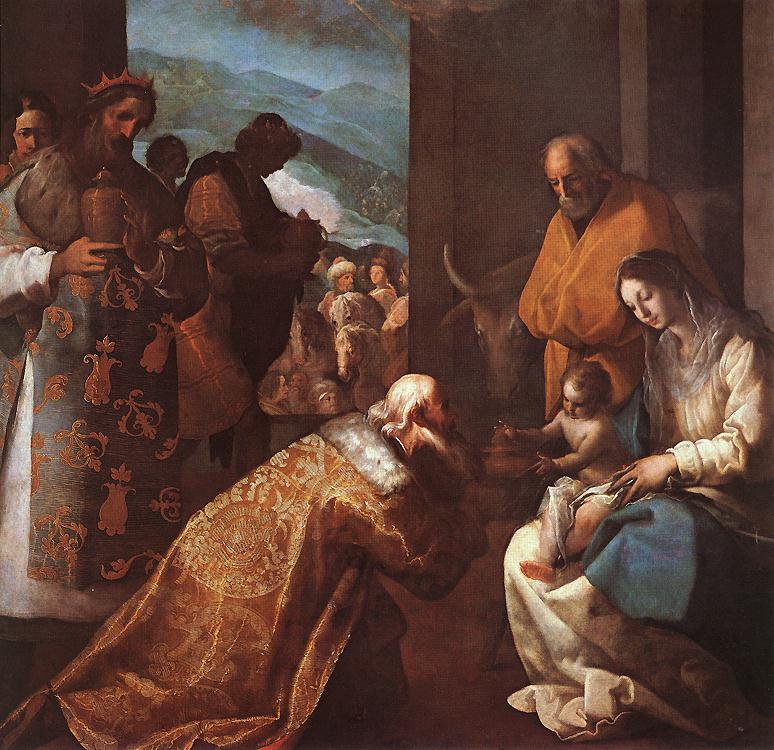
26 Dec Three Wise Guys and King’s Cake: The Lowdown on Epiphany
Epiphany, better known as Three Kings Day, is a Christian feast day that commemorates the visit of the Magi to Christ the child. The feast traditionally is celebrated on January 6, but some branches of Christianity mark Epiphany on the Twelfth Night — which could also fall on January 5 — concluding the Twelve Days of Christmas. (Shakespeare’s gender-bending play Twelfth Night, or What You Will was performed as entertainment for the annual feast day in London as early as 1602.)
As seen in the Bard’s famous comedy (the theatrical inspiration of Amanda Bynes’ She’s the Man in 2006), elements of surprise and revelation are important in cultural celebrations of Epiphany. In Christianity, the journey of the three wise men — i.e. the Biblical Magi — is meant to symbolize the physical manifestation of Jesus Christ to the Gentiles, a term commonly used to denote non-Jews. Represented as distinguished foreigners bearing gifts of frankincense and myrrh, these wise men are staples in Christian nativity scenes today, but the Bible does not actually specify the specific date of their visit. (According to Luke’s timeline, the Magi appear approximately 40 days after Jesus’ birth.) Indeed, little is known about them, but the Western Christian church often portrays them as either kings or scholars from Persia, India and Babylon.
In many countries around the world, these mystical Wise Men function a lot like Santa Claus does in the United States. While a jolly old man hops from roof to roof to distribute gifts in the U.S., the Wise Men leave presents for children on their doorsteps in Latin American countries, including Mexico, during the celebration of Día de los Reyes. (Across the pond in Spain, children actually leave dishes of biscuits and glasses of water for the traveling kings and their camels.)
Mexican families also eat rosca de reyes, a king’s cake pastry, to celebrate Epiphany. Baked into an oval shape, they typically include cherries, figs and candied fruits. However, there’s another important tradition linked to the cakes: a small trinket such as a figurine of the child Christ is baked into the pastry, signifying the Holy Family’s escape from King Herod. The tradition holds that whoever discovers the trinket in their slice of cake hosts a dinner with tamales and atole at their home.
For many San Antonians, the Epiphany season is synonymous with the flaky crunch of rosca de reyes. Want to order a king’s cake for your next holiday party? Check out one of these local bakeries to be a part of the celebration.
La Panaderia, 8305 Broadway Street, (210) 375-6746, lapanaderia.com
La Poplar Bakery, 4235 Culebra Rd, (210) 433-2522
Mi Tierra Restaurant & Bakery, 218 Produce Row, (210) 225-1262, mitierracafe.com
Nadler’s Bakery, 1621 Babcock Road, (210) 340-1021, nadlers.com
Panifico Bake Shop, 602 N.W. 24th Street, (210) 434-9290, panifico.com



